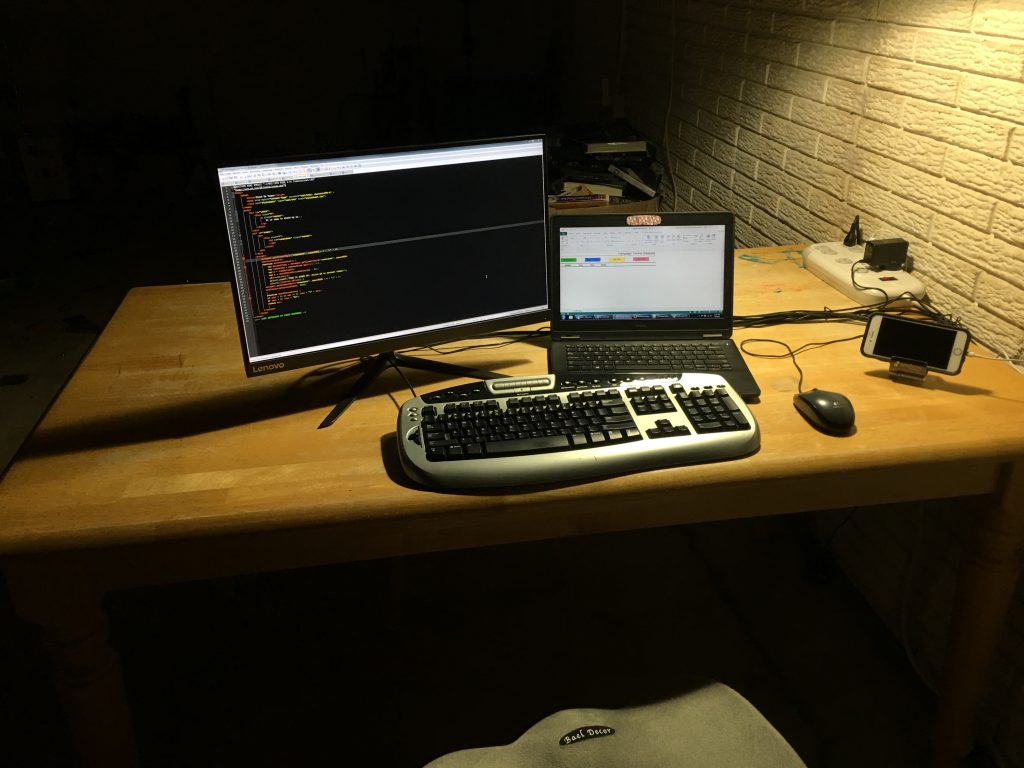In my prior job, I was a web developer for the company’s internal website. Specifically, this website’s purpose was to consolidate process and procedural information for the agents on the phone, presumably so that they could quickly research what to do for any given scenario, because remember: time is of the essence!
Now I’ve noticed something about big companies. An individual job will gradually acquire additional responsibilities until it reaches critical mass. Then, like a plant’s bulb, the job splits, creating a separate position, related to the parent position. That’s when the transition is mild. Sometimes it’s like a star going critical, then exploding into a supernova.
Then something interesting happens, where the plant analogy breaks down: these satellite positions as I’ll call them, remain vaguely defined for a time. Work is dispersed among them, and they gradually form solidly defined purposes. But then, a management change occurs. The new manager, eager to stand out as the new vanguard to change, decides to promote efficiency. Efficiency is the oft correlate to cost reduction (though I find that debatable), and therefore the new manager combines positions and their duties, eliminating needless processes and jobs along the way. The remnants of the supernova, having floated in their nebulous form, gradually coalescing from gravity into new celestial bodies, now collapses back into a new star–a facsimile of the original.
This new star remains as such until it again reaches critical mass, but by then the manager who created it has benefited from the transition sufficiently as to receive promotion. The manager’s replacement sees this star and, eager to stand out as the new vanguard to change, breaks it up into satellite positions. Attentive readers might be having a “Wait a minute…” moment right now.

Yes, it’s cyclic. I’ve experienced having my job redefined so many times that I now expect it as an inevitability. As a result of this dynamic, my job only consisted of developing the Collections website. Operations and Fraud had their own team of developers. Whether or not this was more efficient is an argument left to history, and only a transitory state as defined by those in charge.
Yet, to me it seemed counter-intuitive to have no communication between the teams. After all, we were doing the same thing, and using the same software. It was only expected that each of us had differing levels of knowledge which, if combined, could benefit everyone, right? Not waiting for any management sign-off, as is my way, I initiated dialogs with the other team members. We began sharing knowledge, with limited success, but eventually my own manager saw the value and started some more formal cross-team discussions.
 And all I was after was the sharing of knowledge and information, and to physically sit near each other. My request for a desk near the Operations team was immediately denied. Then, as the discussions began to involve higher levels of management, they died. Some of the changes were minor, like upgrading to HTML5, or implementing RSS update feeds. But ultimately, sensing stagnation and seeing opportunity elsewhere, I took a promotion and transferred to Marketing.
And all I was after was the sharing of knowledge and information, and to physically sit near each other. My request for a desk near the Operations team was immediately denied. Then, as the discussions began to involve higher levels of management, they died. Some of the changes were minor, like upgrading to HTML5, or implementing RSS update feeds. But ultimately, sensing stagnation and seeing opportunity elsewhere, I took a promotion and transferred to Marketing.
Two months later, one of the publishers from the Operations team ran into me as I was taking a walk outside. She confirmed that all movement on the collective ideas had been paused indefinitely, much to her dismay. Shortly thereafter, I received a group email from higher management confirming this.
Ultimately, I’m just as guilty, for I too benefited from this system. In the process of pushing for change, I gained the experience and notoriety needed to achieve promotion, leaving my work, and any hope of meaningful lasting change, to atrophy, thus becoming part of the eternal cycle of zero sum innovation.
We are products of our time. If the right conditions do not present themselves, any idea, good or bad, will fail to achieve fruition. So it was with this story, but while we may not have seen our ideas implemented, technology forces change, and some version of them ultimately will be. I’m curious how similar to our own goals they will turn out.
–Simon

 Remember that story with the little people who would steal insignificant items from around the house in order to craft useful tools needed for their survival? It was a humorous take on the phenomenon of small and low-value clutter vanishing, seemingly without explanation. It’s an innocent way to cope with the irritations of their misplacement.
Remember that story with the little people who would steal insignificant items from around the house in order to craft useful tools needed for their survival? It was a humorous take on the phenomenon of small and low-value clutter vanishing, seemingly without explanation. It’s an innocent way to cope with the irritations of their misplacement.



